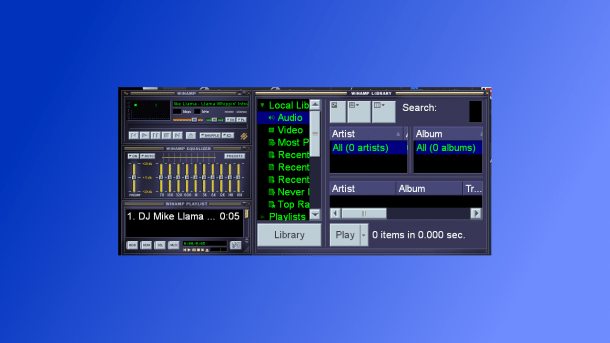Winamp: Source code to become open-source
Winamp could experience a revival: The company wants to make the source code publicly available and is looking for interested co-developers.

The WinAmp media player
(Image: heise online / dmk)
Winamp wants to open up its source code. The company is trying to find co-developers. However, not much is known yet.
A message with an eye-catching date (December 16, 1) on the Winamp website announces the open-source development. According to this, the company intends to publish the source code of the legendary Windows MP3 player on September 24, 2024.
Invitation to developers worldwide
It is an invitation to a global collaboration in which developers can contribute their expertise, ideas and passion to further develop this "iconic software", the company writes. The initiative to open up the source code represents the next step in Winamp's history and allows users to participate directly in improving the product.
Videos by heise
However, the details remain completely unclear at this stage. Winamp is not naming the license of the source code, for example. However, Managing Director Alexandre Saboundjian qualifies: "Winamp remains the owner of the software and will decide which of the innovations make it into the official version". This at least leaves room for forks and possibly alternative versions. The current Winamp CEO has also announced that a new version of the mobile player will be released at the beginning of July.
Winamp is currently available for Windows and as an app for Android and iOS. However, the mobile apps remain closed source according to the current status. Interested parties can register for FreeLLama on a dedicated website. Users registered there will then receive all the latest news about the open-source project.
Winamp can look back on an eventful history. The MP3 player dominated Windows desktops for many years. Meanwhile, however, the software has been pushed back by music streaming services, among other things. It will be exciting to see whether opening it up as open source can revive the player's popularity.
(dmk)